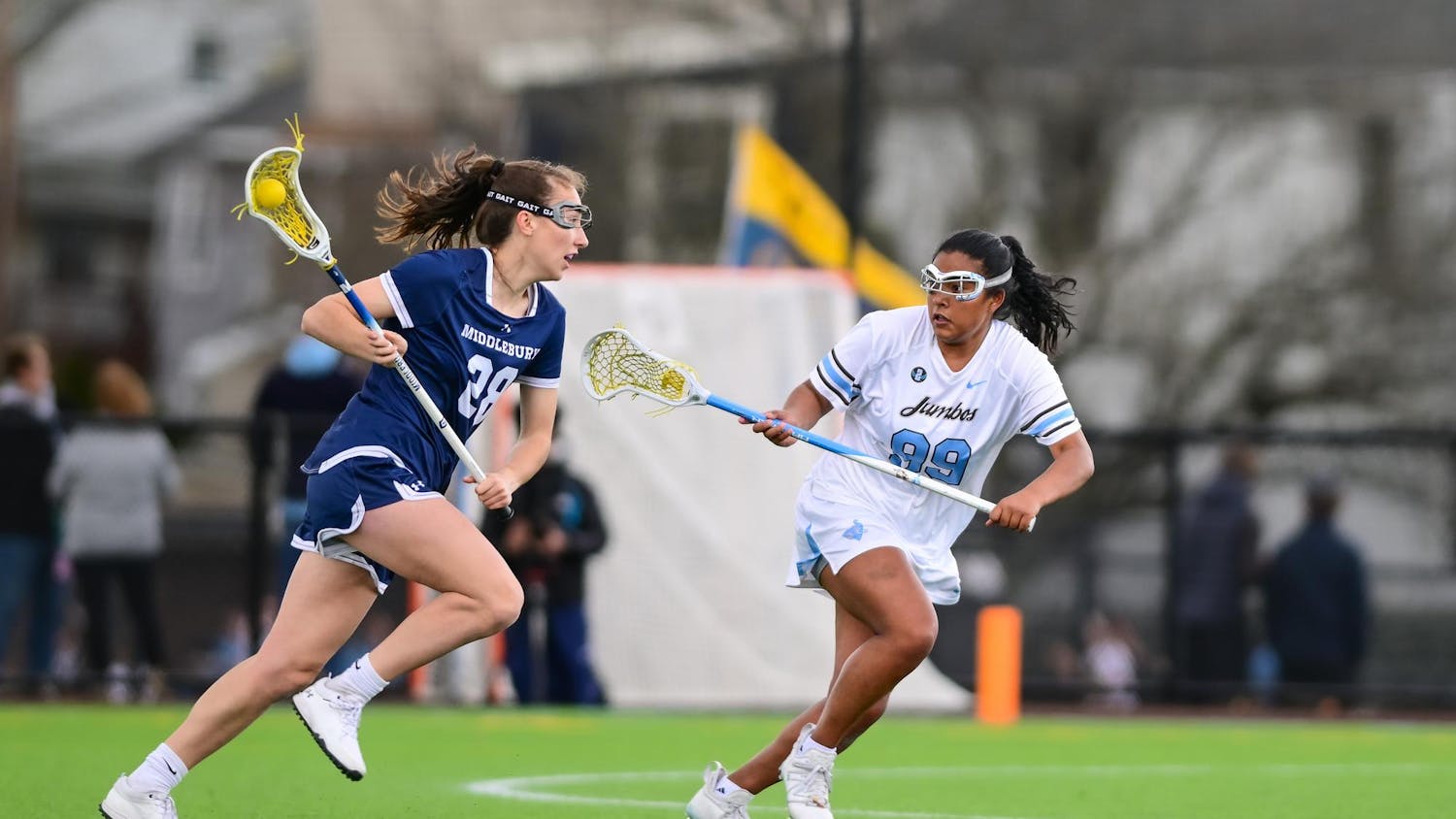What will you say in four years when someone asks you, Remember the Winter Olympics in Sochi? Maybe you'll say you missed it because you didn't have cable. Maybe all you'll remember is how you had a field day making fun of Russia.
We're here to make sure that doesn't happen. In the interest of our readers taking away actual, sports-related memories from the Sochi games, the Daily gives you five takeaways from the past two weeks.
1. Russia ruled
That's what you get for teasing Russia. The hosts won the overall medal count (33) and the gold medal count (13) to become the first host nation since Norway in 1952 to sweep both the overall and gold counts. Russia had more medals than any other country in figure skating, short-track speed skating, skeleton and bobsled.
Russia also led the world in athletes competing (232) and ultimately ranked fifth in "athletes per medal," a statistic that USA Today went to the trouble of calculating. While Russia had 7.0 athletes per medal, the Netherlands had a remarkable 1.7 athletes per medal. More on that interesting tidbit shortly.
One of the biggest surprises was Adelina Sotnikova, who became Russia's first gold medalist in women's Olympic figure skating. Russia won three figure skating golds and five figure skating medals in total.
2. The U.S. was...meh
Second place isnt bad -- but the Americans' performance was a bit disappointing. The U.S. finished five medals behind Russia with 28, nine fewer than the U.S. won in Vancouver four years ago. Twelve of those 28 were bronze, more than any other nation, but only nine were gold.
Perhaps most notable for the U.S. were the shortcomings of some of its biggest names. Speedskater Shani Davis and snowboarder Shaun White left empty-handed. Lindsey Vonn did not defend her 2010 gold in downhill skiing due to injury. The women's hockey team blew a two-goal lead against Canada and lost the gold medal game in overtime. The men's hockey team lost its semifinal game to Canada before getting crushed, 5-0, by Finland in the game for bronze.
Still, the U.S. had some memorable moments. At age 36, Bode Miller took bronze in super-G to become the oldest alpine skier ever to win a medal. On the other end of the spectrum, 18-year old Mikaela Shiffrin became the youngest alpine skier ever to win slalom gold. Ice dancers Meryl Davis and Charlie White were the lone Americans to take multiple medals. And Jason Brown, brother of Tufts junior Jordan Brown, earned bronze in the team-skating event and turned heads on the figure skating scene.
3. Dutch speedskaters dominated
It was mentioned before that the Netherlands earned one medal for every 1.7 athletes at the Games. That had everything to do with the success of the Dutch speedskating squad, which won 23 medals -- eight gold, seven silver and eight bronze. All other countries combined for 13 speedskating medals.
Another hat-tip to USA Today for some statistics to put this in perspective: The Dutch speedskating team alone would have placed sixth in the overall medal count. And while Canada earned 25 medals with 180 athletes, the Netherlands earned 24 with just 41 athletes.
Why is the Netherlands so good at skating fast?
"We grew up with [speed skating]," Dutch speedskater Michel Mulder told reporters. "Every little kid in the Netherlands does it."
4. Ole Einar Bjoerndalen won
Bjoerndalen, a Norwegian biathlete, became the most decorated Winter Olympian of all time by winning his 13th career medal. His record-breaking medal was gold, earned in the biathalon mixed relay. Bjoerndalen surpassed fellow countryman Bjorn Daehlie, who won 12 medals in cross-country skiing. 12





